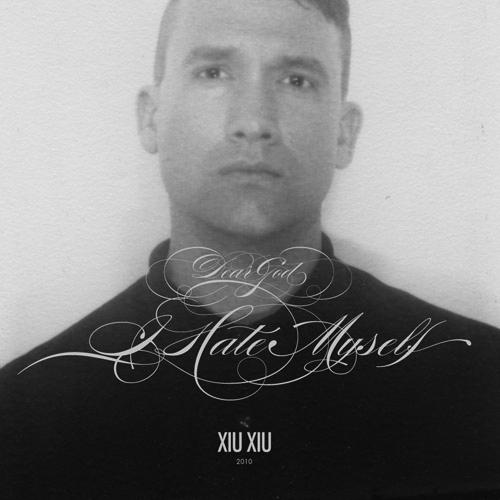“Dear God, I Hate Myself,” the new album by Xiu Xiu, refuses to be classified. Just like the group’s previous albums, their seventh release is influenced by everything from noise to indie rock, but manages to blend these sounds in a unique way. Though “Dear God, I Hate Myself” can be difficult to listen to, the innovation and power of the album is undeniable.
Lead singer and songwriter Jamie Stewart arranges his music to prod and engage listeners. Underneath Stewart’s vocals—which alternatively whimper, sing, and shout—layers of instrumentation and programming juxtapose guitars, drums, a banjo, a cello, and synthesizers, among other noisemakers. “Apple for a Brain” is composed particularly with provocation in mind, its bouncing beats and chirping drums suddenly giving away after two minutes into what seems like a completely different song. This is far from an isolated example of the group disregarding musical conventions—just one of the reasons why “Dear God” is far from accessible.
The torment within the album’s lyrics is similarly troubling, and made obvious right from the start. The very first words of opener “Gray Death”—“Beat, beat me to death”—quickly establishes the album’s grim mood. The most biting song on the album, “Chocolate Makes You Happy,” is also one of the most surprising. Neither its title nor its relatively simple melody hints at its lyrical perversity: “Chocolate makes you happy / And it keeps you awake / As you unbutton your top pants button / Bewildered by the pain.” The song then moves from a seeming indictment of sweet-toothed hedonism to a depiction of the torment of an eating disorder.
Driven by a guitar and a snare drum, the title track is the most conventional and catchy of the dozen songs on “Dear God.” There’s a fascinating incongruity between the bleakness of the refrain and its catchiness, as though Stewart wants listeners to sing, “Dear God, I hate myself,” without realizing quite what they’re saying. Additionally, the title track’s rhythms are thoroughly danceable. An underlying, distorted hand-clap beat, is accompanied by emphatically-strummed guitar. Both occasionally spiral into seemingly extemporaneous electronic interludes, but the base beat always returns. The meter brings to mind the driving compositions of New Order, whose music has been influential on Xiu Xiu’s development.
As the foot-tapping rhythms of the title track demonstrate, “Dear God, I Hate Myself,” continues the band’s habit of making songs that shout and lament over a din of schizophrenic, yet somehow coherent compositions. But the band also continues to experiment, as on the song “Cumberland Gap,” where the twanging of a banjo surprises listeners as it accompanies Stewart’s vocals, both moving over the same notes in unison. The song is a reworking of a famous folk tune named for a pass in the Appalachian Tennessee, an origin which reveals another of the group’s diverse influences: bluegrass music. Though it’s the shortest song, “Cumberland Gap” stands out as one of the album’s shining moments.
“Dear God, I Hate Myself,” for all its pain and aggression, seems like a sort of purgation. Stewart opens the floodgates, rapidly pouring out all his anguish, then ends his songs just as the trickle of emotion falters. There are no songs longer than four minutes, as Stewart avoids allowing his message to dilute into thin, drawn out tracks. Though this can be overwhelming, it is also somewhat cathartic and gives the feeling of healing through expression. Xiu Xiu’s risk-taking and continued diversity of influence add another layer of interest to a fascinating album. While certainly not easy to listen to, “Dear God” proves that Xiu Xiu are doing their best to turn what seems to be a potentially destabilizing pain to very productive ends.
Read more in Arts
Passion and Compassion













